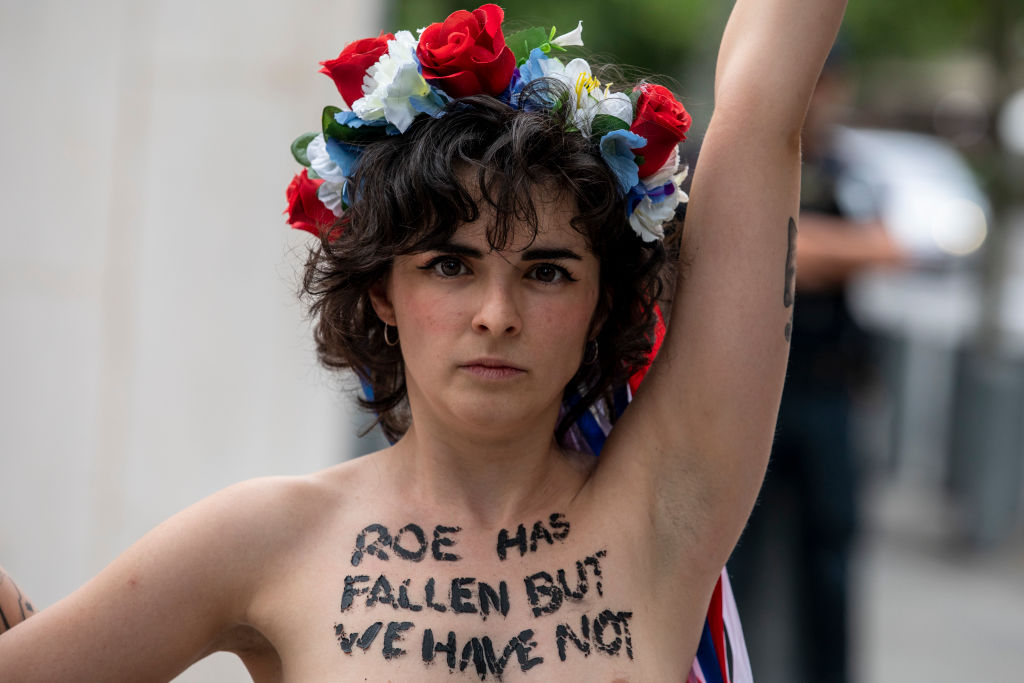
Simon Clarke, Theorist of Capitalist Crisis
April 10, 2025
Dan Bongino Wants You to Know He’s Working Really Hard. Seriously. He Is.
April 10, 2025From punitive drug laws to poverty-related offenses, women around the world are being imprisoned not for who they are, but for the challenges they face—exposing deep failures in justice systems globally.
Mass incarceration is often portrayed as a U.S. problem, but it is a global issue. The number of women in prison worldwide has increased by 57 percent from 2000, rising at a faster rate than the number of men. Without critical action, we could soon reach over 1 million women behind bars globally and thousands more criminalized.
In a new report, “From Poverty to Punishment,” Women Beyond Walls and Penal Reform International explore the reasons for this alarming increase. As the first global report of its kind, it exposes the myriad ways laws are weaponized against women who are in situations of vulnerability or because of their ‘status’ as women.
The report examines how laws criminalize women for acts of survival—from petty theft, such as stealing food for their babies, to begging, to working in the informal economy as domestic workers or street vendors, to women detained for debt in violation of international law. Women continue to be arrested under archaic, colonial-era vagrancy laws or simply for being homeless. Although many of these laws appear gender-neutral, they disproportionately impact women due to the feminization of poverty and systemic gender discrimination.
Throughout the report, “Hear Her Voice” sections document the stories of women whose voices have been ignored or made invisible: a woman from Kenya who was arrested for selling food without a license that was too expensive for her to afford; a woman from England, already struggling financially, who was prosecuted for not paying her TV license; a woman from Chile who was imprisoned for 30 days for stealing food to feed her baby; a woman from Mexico who was sentenced to six years in prison for transporting marijuana in order to pay for her mother’s medical treatment.
The U.S.-led war on drugs and harsh drug laws are also disproportionately driving the increase in women’s imprisonment, particularly in Latin America and Asia. This is compounded for women of color, Indigenous women, queer women and/or women living in poverty. The proportion of women in prison sentenced for drug-related offences is higher than that of men, comprising 35 percent of the global women’s prison population compared to 19 percent of men, and rising from 50 to 80 percent in various Latin American and Asian countries.
Prison is not a safe space for women or their children.
Yatie Jonet, a community advocate from Malaysia and member of the International Network of Formerly Incarcerated Women, told me:
“The war on drugs is filling prisons with women who are often in desperate situations. I know from my own experience that prisons, or mandatory drug treatment centers, cause further harm rather than help. We need an approach rooted in health and support, rather than punishment. Governments and international organizations must involve women with lived experience and civil society organizations in shaping solutions that actually meet the needs of women who use drugs.”
Across the world, women continue to be criminalized based on their sexuality, gender identity, reproductive health and mental health status. For example, at least 40 countries specifically criminalize consensual sexual conduct between women, and there are currently 15 countries where abortion is prohibited without exceptions. Laws that punish aspects of women’s lives in these areas reinforce systemic discrimination, restrict bodily autonomy, and expose women to violence.
Women such as Izabela Sajbor from Poland who was denied an abortion following a diagnosis of fetal abnormality. Later, to comply with the strict law, doctors delayed medical intervention, waiting for the fetus’ heart to stop beating before performing a caesarean section, leading to Izabela’s death at age 30. Before dying, Izabela sent a text to her mother:
“The doctors can’t help as long as the fetus is alive thanks to the anti-abortion law. A woman is like an incubator.”

In some countries, women are also prosecuted for so-called ‘morality’ or ‘honor’ offenses—including adultery, extra-marital sex, what they wear, their behavior online or even accusations of witchcraft. For example, in Morocco women have been prosecuted for ‘adultery’ when trying to obtain a divorce or report gender-based violence.
With far-right agendas gaining traction, anti-rights movements growing and attacks on women’s rights intensifying, the escalating use of the law as a weapon against women—such as through the criminalization of abortion—serves as a stark call for collective action.
However, these systemic injustices remain largely absent from high-level forums on women’s rights and global gender equality priorities. Last month I was in New York at the U.N. Commission Status on Women, the principal global intergovernmental body exclusively dedicated to the promotion of gender equality and the empowerment of women. There was minimal focus on this issue and there was no mention at all about women in detention in the political declaration. It was a missed opportunity to push more global action, as this year also marks 15 years since the adoption of the U.N. Bangkok Rules—international standards designed to reduce the number of women in prison and protect their rights in the criminal legal system.
This omission from the global gender equality agenda has been previously highlighted by Women Beyond Walls as well as the lack of funding for work to address women’s incarceration by women’s rights and human rights donors. With severe funding cuts from key governments expected in 2025, I am gravely concerned about the impact this will have on an already underfunded sector and critical service provision for women and girls impacted by the criminal legal system.
Prison is not a safe space for women or their children. Yet rather than investing in support services and community solutions, countries continue to criminalize those who are marginalised and vulnerable.
For too long, the criminal legal system has been used to address issues related to poverty, mental health, abuse and marginalization. In some instances, it has been weaponized to target women or disproportionately impact women. It is critical to reevaluate, reform and reimagine justice systems and move from an approach based on punishment to one rooted in community, care and support which research shows produce much better outcomes for women and their children.
Great Job Sabrina Mahtani & the Team @ Ms. Magazine Source link for sharing this story.





